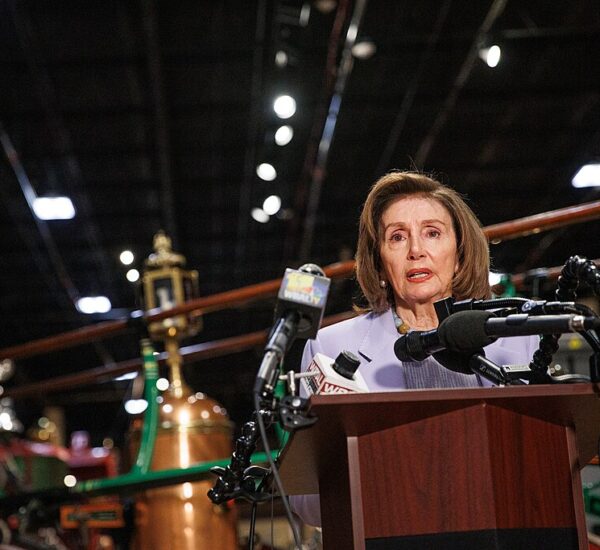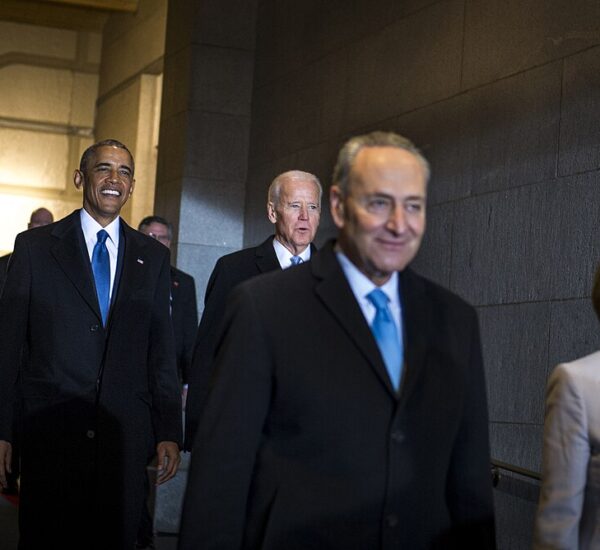House Makes 2026 Progress
With just weeks left before a September 30 deadline, House Republicans are taking decisive action to prevent a costly government shutdown while restoring accountability to the nation’s budget process.
Under the leadership of Speaker Mike Johnson (R-LA), the House voted to formally negotiate with the Senate on three critical funding bills for fiscal year 2026. These bills cover the Department of Veterans Affairs, Department of Agriculture, the FDA, rural development, military construction, and the legislative branch — key areas that directly affect America’s veterans, farmers, and hardworking families.
“We’re pushing for a real, old-school conference between the House and Senate — the way Congress is supposed to function,” Speaker Johnson said Tuesday.
This move represents a sharp break from recent years of last-minute, back-room deals and massive spending bills that have left taxpayers footing the bill.
Democrats Push for More Spending and Progressive Priorities
While some Senate Democrats have signaled a willingness to negotiate, deep divisions remain.
Senate Majority Leader John Thune (R-SD) supports the move toward a formal conference process, but warned that Democrats must first agree to it. “I’d like to see us return to regular order, where both sides actually work together to find solutions,” Thune said.
Democrats, however, are already pushing for massive spending increases in programs like the Special Supplemental Nutrition Program for Women, Infants, and Children (WIC). They also want to remove what they call “poison pills” — provisions added by House Republicans to rein in government waste and defend conservative values.
Rep. Rosa DeLauro (D-CT), the top Democrat on the Appropriations Committee, blasted Republicans for resisting higher welfare spending, claiming, “There will be no agreement without addressing these urgent issues.”
Johnson Names Key Negotiators to Protect Taxpayers
Speaker Johnson appointed 32 lawmakers — 19 Republicans and 13 Democrats — to represent the House in negotiations with the Senate.
The group includes House Appropriations Chair Tom Cole (R-OK) and several conservative leaders, such as Reps. Robert Aderholt (R-AL), John Carter (R-TX), Andy Harris (R-MD), and David Valadao (R-CA).
Cole emphasized that this process will finally give rank-and-file lawmakers a voice in the budget process instead of leaving decisions to a handful of Washington elites.
“When only a few top negotiators make the decisions, everyday Americans lose,” Cole said. “This formal process reflects the will of Congress and, more importantly, the American people.”
The Appropriations Committee confirmed this is the first time since 2019 that regular appropriations bills could advance to a formal conference. Cole called it a “notable milestone” toward restoring transparency and fiscal responsibility.
Race Against the Clock to Avoid Shutdown
Congress faces a tight timeline to pass these bills before September 30. If lawmakers cannot agree, they will need to pass a continuing resolution (CR) to keep the government operating at current spending levels and avoid a shutdown.
Rep. Mark Amodei (R-NV) said this step is critical to prevent Congress from relying on bloated, last-minute funding bills.
“We’ve never been this close to anything resembling regular order,” Amodei said. “This is a big step toward getting Washington back on track.”
However, he acknowledged the challenge ahead, adding, “I don’t think we’re going to get a full package passed before the deadline — but I hope I’m wrong.”
Why This Matters for America
House Republicans are taking a stand to cut wasteful spending, protect taxpayer dollars, and stop the far-left’s progressive wish list. For years, Congress has relied on closed-door deals that lack transparency and accountability.
By returning to this constitutional, transparent process, Speaker Johnson and House conservatives are working to ensure every taxpayer dollar is spent wisely.
This fight isn’t just about preventing a shutdown — it’s about defending America’s future and stopping Democrats from pushing reckless spending that could burden future generations.
Bottom Line
House Republicans are making a historic push to restore fiscal discipline and protect taxpayers, while Democrats fight for higher spending and partisan policies. The coming weeks will determine whether Congress passes responsible funding bills — or if Democrats continue playing political games with America’s budget.






